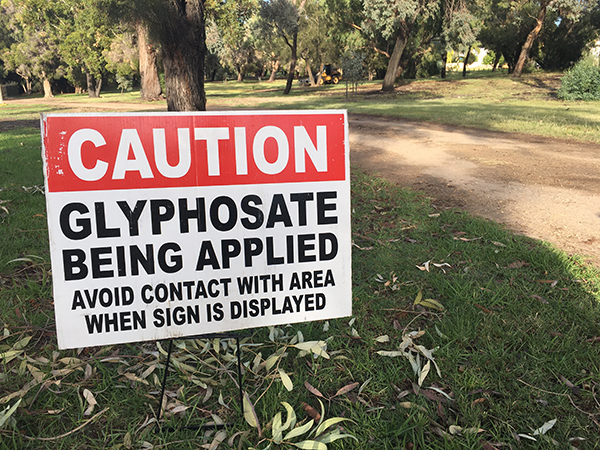Judge rules Kansas vaccine lawsuit against Pfizer must proceed in state court
05/16/2025 / By Willow Tohi

- U.S. District Judge Daniel D. Crabtree has allowed Kansas’s lawsuit against Pfizer to proceed in state court, rejecting Pfizer’s attempt to move the case to federal court under the PREP Act, which shields vaccine manufacturers from liability for injuries.
- The lawsuit, filed by Kansas Attorney General Kris Kobach in June 2024, accuses Pfizer of misleading the public about the safety and efficacy of its COVID-19 vaccine, Comirnaty, including failing to disclose serious risks and overstating the vaccine’s effectiveness.
- Judge Crabtree ruled that the PREP Act does not apply to claims of consumer fraud and misrepresentation, as it was designed to protect against claims related to physical injuries, not deceptive marketing practices.
- This decision could encourage other states to pursue similar lawsuits under state consumer protection laws, challenging the PREP Act’s liability shield and potentially holding vaccine manufacturers accountable for false or misleading claims.
- Pfizer is expected to appeal, but the ruling is a significant win for advocates seeking accountability. The case will now return to state court, where Kansas will need to prove its claims under the state’s Consumer Protection Act, with potential far-reaching implications for vaccine litigation and transparency.
In a landmark decision that could set a significant precedent, U.S. District Judge Daniel D. Crabtree ruled that a lawsuit filed by the state of Kansas against Pfizer must proceed in state court. The case, which accuses Pfizer of misleading the public about the safety and efficacy of its COVID-19 vaccine, Comirnaty, was initially moved to federal court by Pfizer, citing protections under the PREP Act. However, Judge Crabtree rejected Pfizer’s arguments, paving the way for the case to be heard in state court under Kansas consumer protection laws.
Allegations of deceptive marketing
The lawsuit, filed by Kansas Attorney General Kris Kobach in June 2024, alleges that Pfizer engaged in deceptive marketing practices by overstating the safety and effectiveness of its COVID-19 vaccine. According to the complaint, Pfizer knew about but failed to disclose serious risks associated with the vaccine, including myocarditis, pericarditis and links to failed pregnancies and deaths. The suit also claims that Pfizer falsely asserted the vaccine’s efficacy remained high over time and that it could prevent COVID-19 transmission, despite evidence to the contrary.
The case does not claim that the vaccine caused physical injuries or deaths, but rather focuses on allegations of consumer fraud and misrepresentation. As such, Judge Crabtree ruled that the PREP Act, which shields vaccine manufacturers from liability for injuries caused by vaccines, does not apply in this context. “That point alone ends the debate,” Crabtree wrote in his ruling.
The PREP Act and Pfizer’s legal strategy
Pfizer had argued that the PREP Act, enacted during the COVID-19 pandemic to protect vaccine manufacturers from liability, “completely preempts” consumer protection claims, thus justifying the case’s removal to federal court. However, Judge Crabtree dismissed this argument, stating that the PREP Act was designed to protect against claims related to physical injuries, not against deceptive marketing practices.
“This first-of-its-kind ruling declares Pfizer’s deceptions aren’t afforded carte blanche treatment,” said Ray Flores, senior outside counsel for Children’s Health Defense (CHD), which supported the Kansas lawsuit. “This decision is important because it creates a viable path for Pfizer to potentially be held accountable for its wrongdoing on a massive scale.”
The ruling could embolden other states that have expressed interest in pursuing similar lawsuits under state consumer protection laws. Until now, courts have generally allowed Pfizer to claim legal immunity under the PREP Act, but this decision provides a new pathway for holding vaccine manufacturers accountable for false or misleading claims.
Broader implications for vaccine litigation
The Kansas ruling comes amid a growing number of lawsuits challenging the scope of the PREP Act’s liability shield. For example, in March 2025, the Supreme Court of North Carolina overturned a lower court’s dismissal of a lawsuit challenging Pfizer’s administration of vaccines to minors without parental consent. The court ruled that the PREP Act does not preempt state laws requiring parental consent for vaccination.
Additionally, a federal court ruled in November 2024 that the PREP Act does not extend to breach-of-contract claims, allowing a lawsuit against AstraZeneca to proceed. These cases suggest that while the PREP Act provides robust protections for vaccine manufacturers, it does not create a blanket immunity against all forms of legal action.
The path ahead for the Kansas lawsuit
Pfizer is expected to appeal the federal judge’s ruling, but the decision represents a significant win for advocates who have long argued that vaccine manufacturers should be held accountable for misleading the public. “Without PREP protection, Pfizer will have to face the music and try to defend its lies in open court,” Flores said.
As the case moves back to state court, it will now be up to Kansas to prove its claims under the state’s Consumer Protection Act. The outcome of the case could have far-reaching implications for vaccine litigation and the broader debate over vaccine safety and transparency.
A watershed moment in vaccine accountability
Judge Crabtree’s decision marks a turning point in the legal landscape surrounding COVID-19 vaccines. By rejecting Pfizer’s claim of immunity under the PREP Act, the court has opened the door for states to hold vaccine manufacturers accountable for deceptive marketing practices. As other states consider similar lawsuits, this ruling could serve as a roadmap for challenging the scope of the PREP Act and ensuring that vaccine manufacturers adhere to truthful and transparent practices. The case will now return to state court, where the full extent of Pfizer’s alleged wrongdoing will be examined in a public forum.
Sources for this article include:
Submit a correction >>
Tagged Under:
big government, Big Pharma, Censored Science, conspiracy, corruption, covid-19, deception, kansas, pandemic, Pfizer, pharmaceutical fraud, progress, vaccine damage, vaccine injury, vaccine wars, vaccines
This article may contain statements that reflect the opinion of the author
RECENT NEWS & ARTICLES
COPYRIGHT © 2017 CONSPIRACY NEWS


















